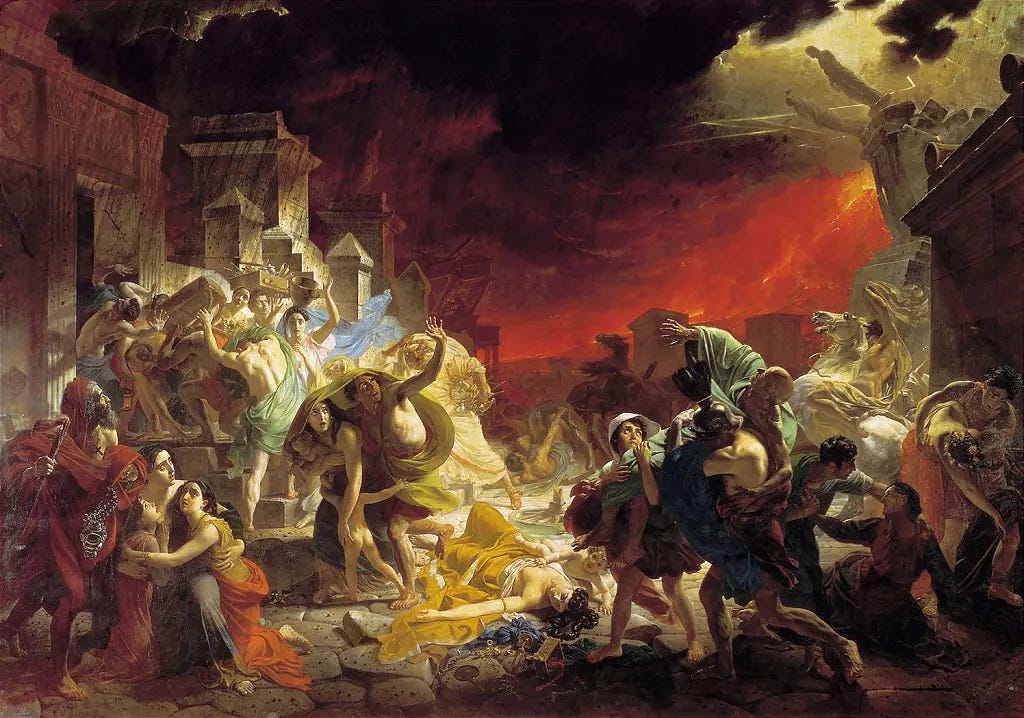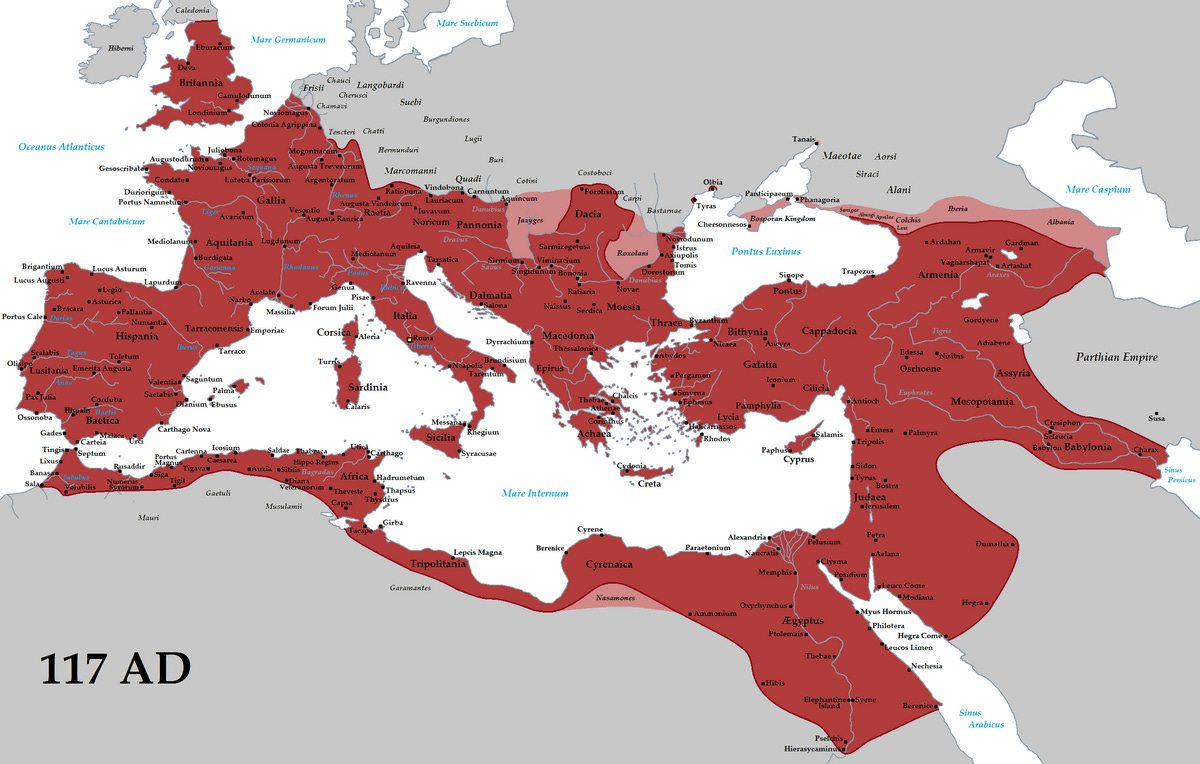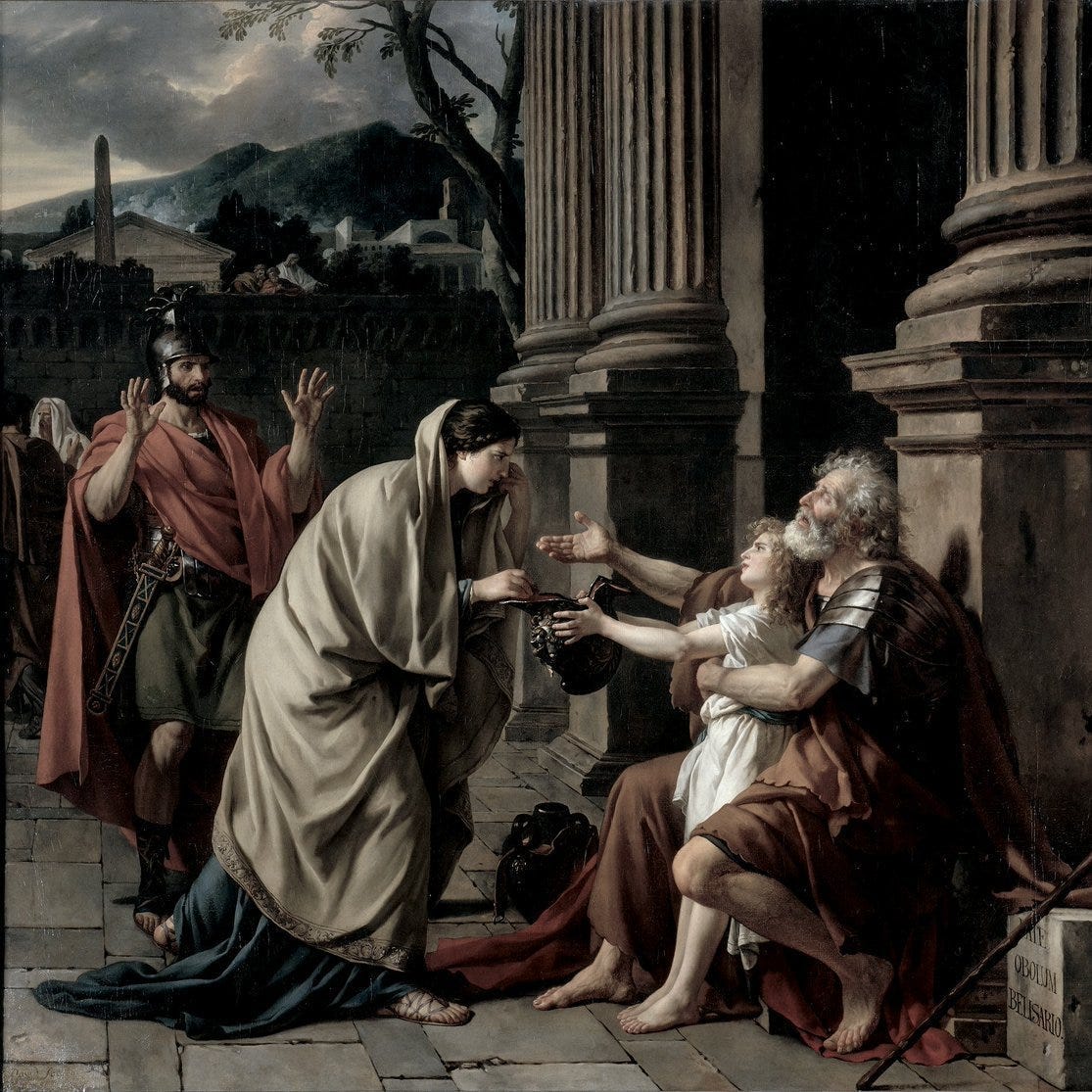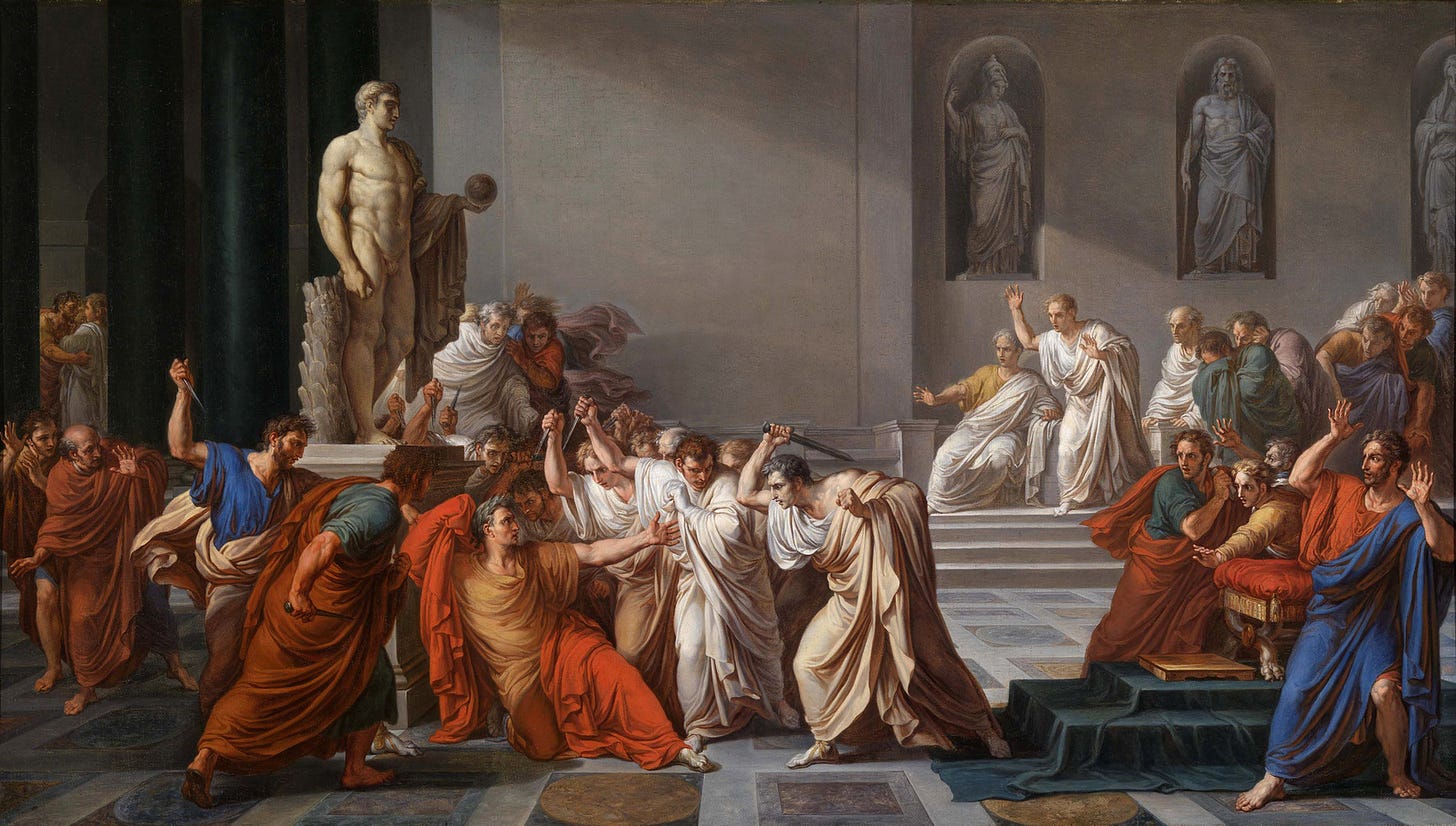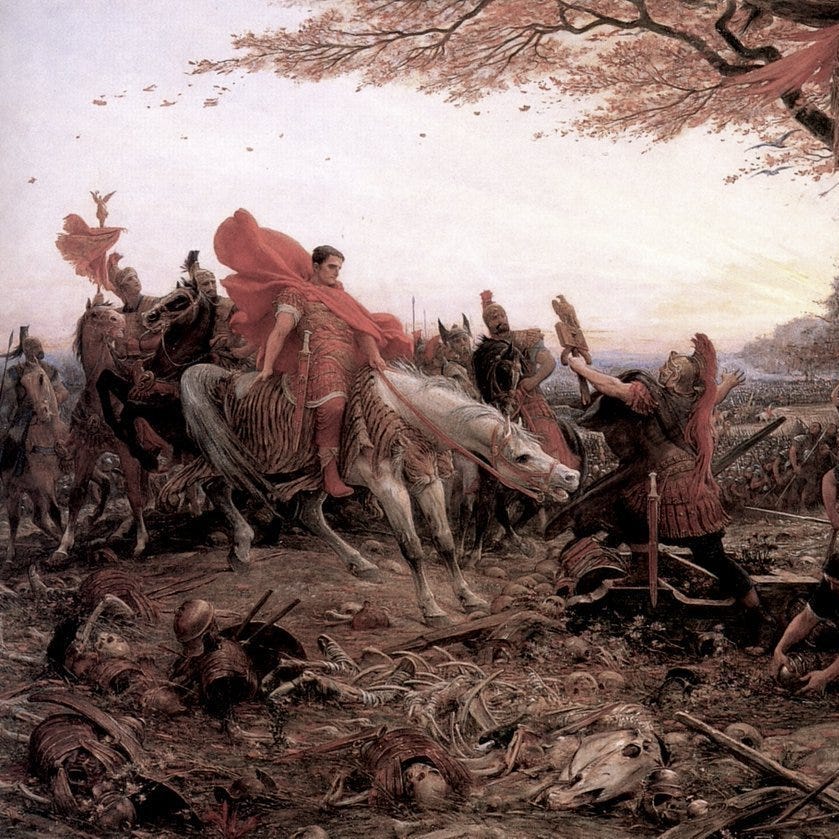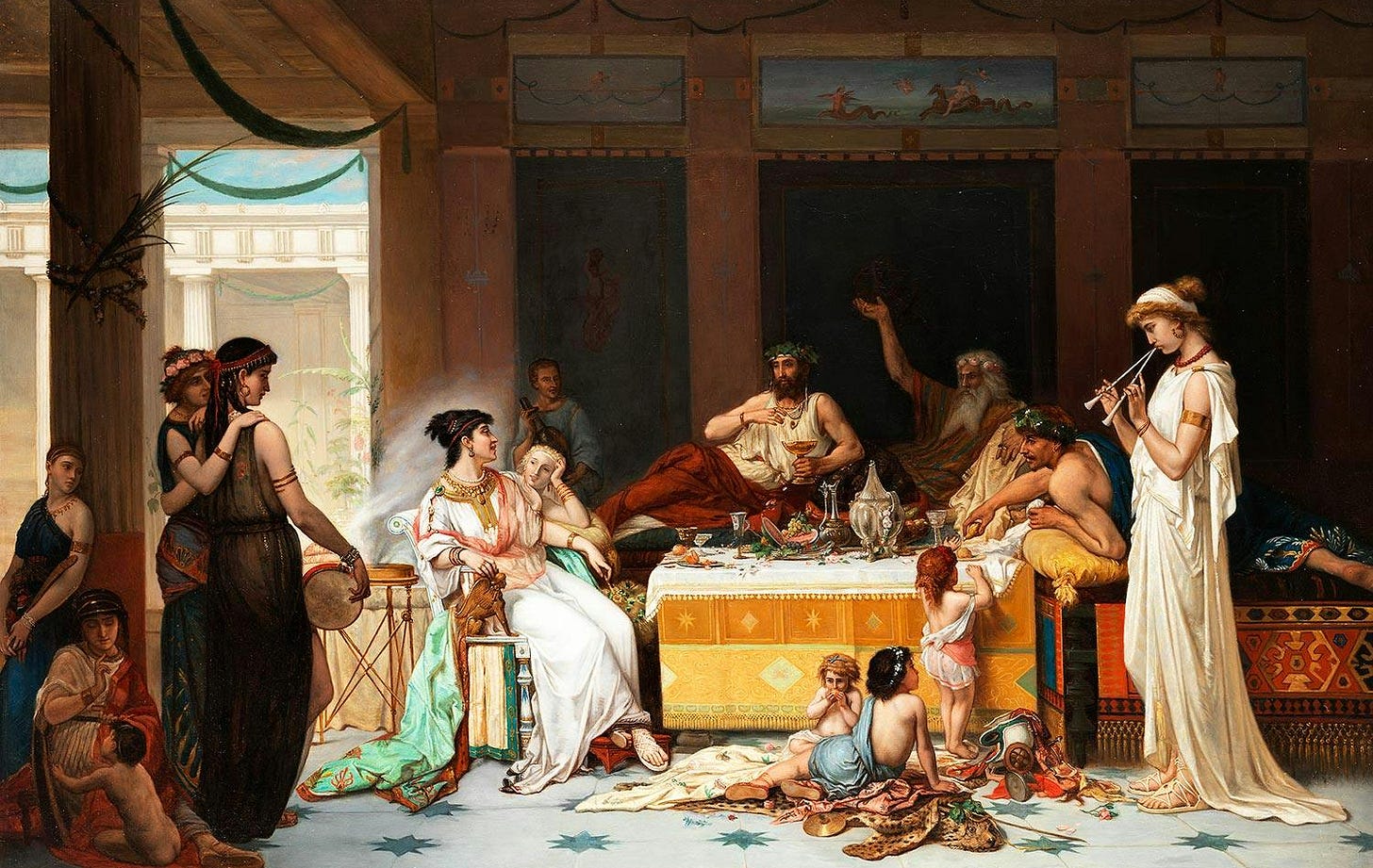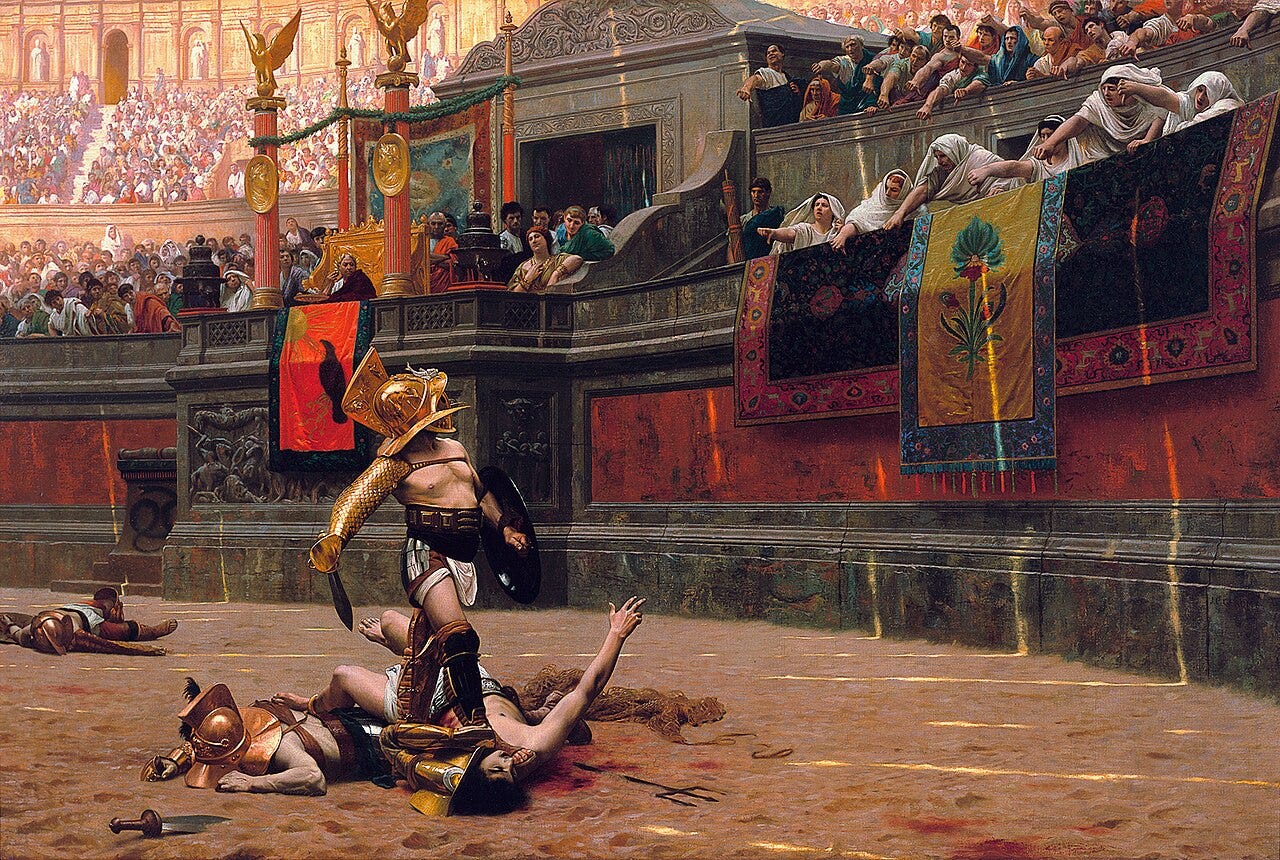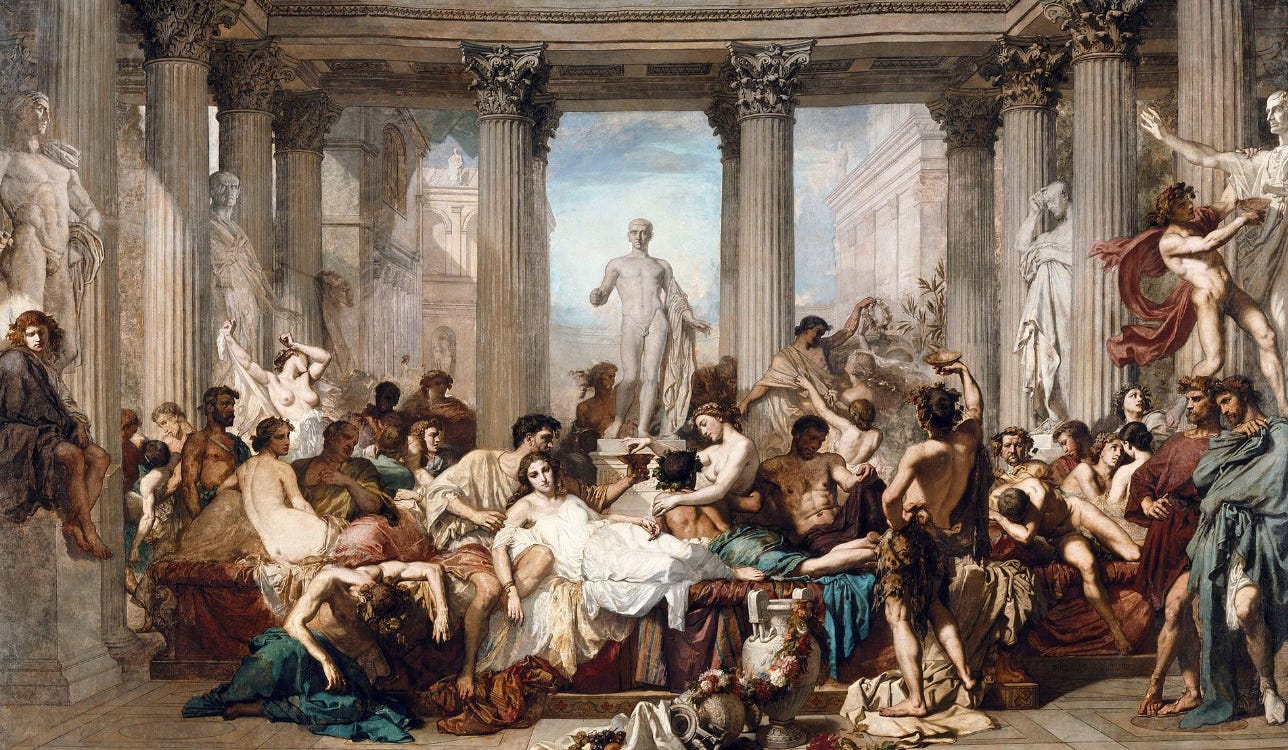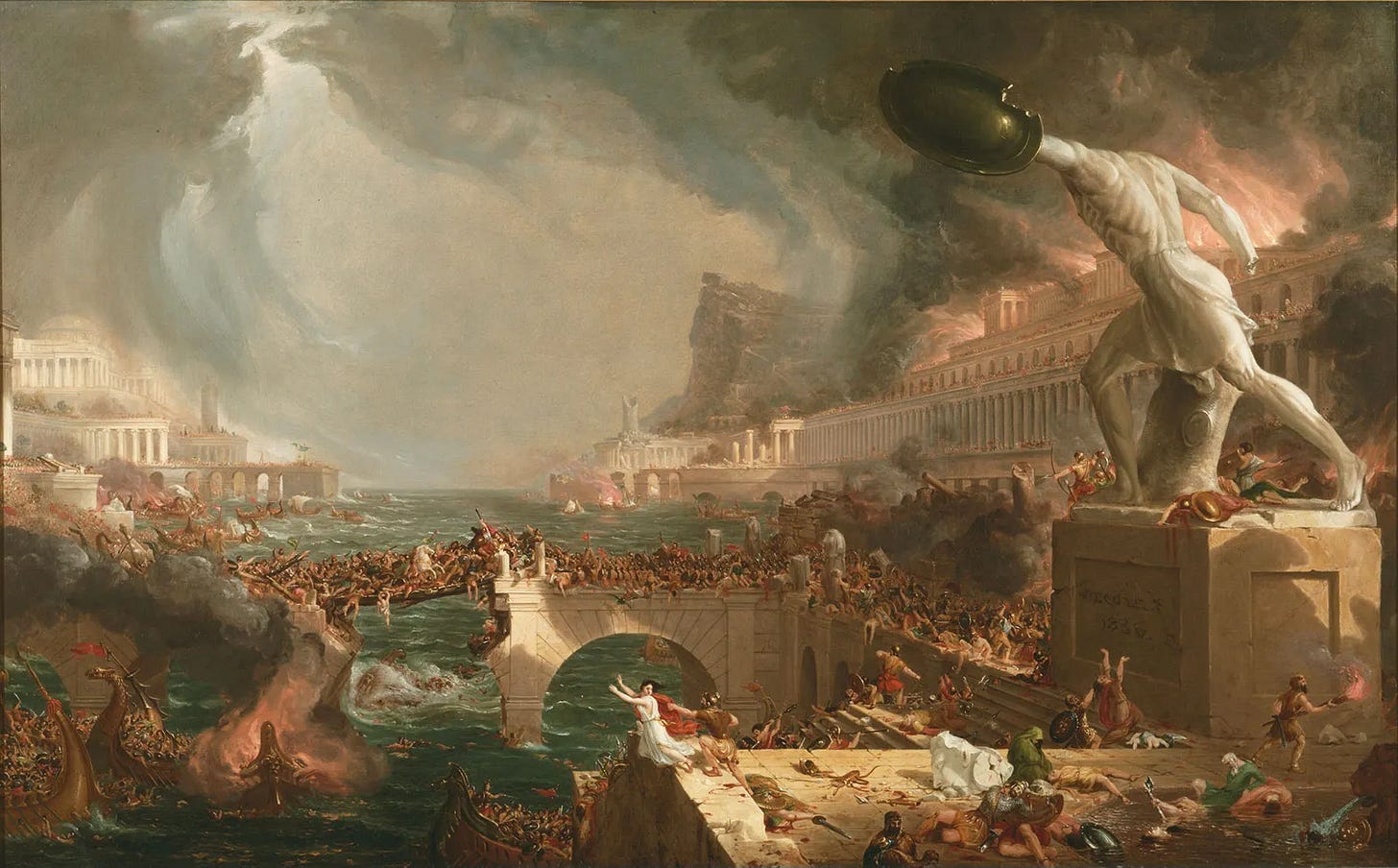Is Western Civilization in its death throes? Are we just like ancient Rome?
It’s become cliché to compare the modern West with the late Roman Empire, but it’s cliché for a reason: there are indeed many similarities between Rome’s final days and today.
Because we firmly believe that decline is not density, though, Rome’s fall serves as a warning — every mistake Rome made is a lesson for us. So what are the factors that led to the decline and fall of the Roman Empire?
Luckily, we don’t have to guess — because the Romans themselves told us. The great historians of the period as well as eyewitness accounts paint an eerily familiar picture to modern observers.
According to its citizens, Rome’s fall was multifaceted, but there was one failure that hastened all the rest….
Reminder: you can get tons of useful members-only content and support our mission for a few dollars per month 👇
Two new, full-length articles every single week
Access the entire archive of useful knowledge that built the West
Get actionable principles from history to help navigate modernity
Support independent, educational content that reaches millions
1. Rapid Expansion
The Roman Empire’s rapid expansion outpaced its ability to effectively assimilate conquered peoples. This failure to integrate diverse populations led to political fragmentation and deepening cultural divisions.
In Res Gestae, Ammianus Marcellinus outlined the extent of the empire’s social fracturing:
“The empire was overrun by peoples who had not been Romanized, and this lack of unity led to civil strife and vulnerability to external threats”.
Internal instability ensued as some tribes established semi-autonomous entities within Roman territories, further undermining Rome's control. Rome’s military resources and border defenses were simply too overextended to manage the situation.
2. Rise of Slavery and Unemployment
The exponential rise in slavery created economic instability and social unrest as the influx of slaves displaced free laborers and led to widespread unemployment and poverty.
Cassius Dio observed the social unrest caused by slavery and unemployment in his work Roman History:
“The plebeians, excluded from all employment by the enormous number of slaves, fell into idleness, poverty, and vice”.
This shift also weakened the empire's economic foundation and military strength, reducing the number of citizens able to serve in the army. At the same time, it eroded traditional Roman values, strained resources, and ultimately undermined social cohesion and the empire’s ability to withstand external threats.
3. Heavy Taxation and Inflation
Heavy taxation and inflation were key factors that weakened Rome’s economic foundations, further exacerbating the debasement of currency during the reign of Nero.
In his On the Embassy to Gaius, Philo of Alexandria commented on the empire's dire financial situation:
“For when it is necessary to pay taxes, the tax collectors are not ashamed to resort to violence and extortion, and they have no regard for the laws or for justice”.
This oppressive taxation, combined with inflationary pressures eroded public trust in the political and economic institutions and stripped Roman families of their wealth and dignity.
4. Corruption
If the late Roman Empire is known for anything, its corruption. Rampant bribery, embezzlement, and nepotism eroded public confidence in Rome’s ancient institutions and weakened governance.
Tacitus recounted the state of political corruption and instability in the Annals:
“Now was the time when every man's slaves were corrupted, when every rich man's household was in a state of anarchy”.
The interference of the Praetorian Guard in imperial succession combined with as well as fractured political authority created constant uncertainty and internal divisions that left Rome in a weakened state.
5. Reliance on Mercenaries
As more and more Romans chose a life of luxury over hardship and discipline, the empire’s war machine was given over to soldiers who lacked loyalty to Rome and did not share Roman values.
Plutarch provides an intriguing insight into the Roman people’s abandonment of their martial ethos and descent into effeminacy:
“The Romans, who had once been invincible in war, were now softened by luxury and indolence, and were no longer able to bear the hardships of war. Thus, they became a prey to their enemies, who were emboldened by their weakness”.
This shift from the Roman legionary being the foundation of Roman power to the reliance on foreign mercenaries undermined loyalty, effectiveness, and cohesion. This left borders vulnerable to barbarian invasions and rendered Rome unable to defend its vast territories.
In many cases, barbarian chieftains and warlords tribes used the very same military strategies they had learned serving in the Roman legions against the empire itself!
6. Declining Birth Rates
Declining birth rates left Rome’s population in freefall. This was further exacerbated by the devastating Antonine Plague which is estimated to have killed nearly 15% of the Roman population.
In Anecdota, Procopius observed the tragic collapse of the Roman family and population:
“Thus the empire, which had been built by virtue, was destroyed by vice. For the people had become so corrupted that they no longer cared for their own welfare or that of their children. They were not only indifferent to their own safety but also to the safety of the state”.
This demographic crisis was further magnified by widespread contraceptive practices amongst the Roman population, leading to labor shortages and economic instability.
7. Wealth Inequality
With the rapid expansion of the empire, wealth increasingly became concentrated among a few elites while many citizens lost their property and livelihoods. Wealth inequality increased while the “middle class” was hollowed out.
In the Annals, Tacitus described the growing inequality within Roman society:
“The degradation of the populace was a consequence of wealth being concentrated in the hands of a few, while the masses were left impoverished and without means”.
This economic disparity resulted in social unrest, leaving Rome vulnerable to internal strife. With a shrinking tax base and fewer citizens able to serve in the military, Rome was unable to maintain the large empire it had created, and began to fracture.
8. Focus Away From Civic Duties
Focus on entertainment like chariot races and gladiatorial games distracted the people of Rome from their civic duties. Juvenal encapsulates this aspect of moral decline in how work Satires:
“The people have abdicated their duties. Everything now restrains itself and anxiously hopes for just two things: bread and circuses”.
“Bread and circuses” involved the Roman government providing welfare and extravagant entertainment to placate the masses, fostering a culture of dependency and apathy among citizens.
As emperors invested greater resources in these spectacles to gain popularity, they neglected critical governance and military needs. It also cultivated a culture that was fascinated with the facsimile of war — “blood and gore” — while leaving them wholly unprepared when actual conflict reached their doorstep.
9. Barbarian Invasions
Continuous barbarian invasions destabilized the power and authority of provincial governments leading to widespread looting and chaos.
In his Res Gestae, Ammianus Marcellinus captured the Romans’ collective sense of impending doom:
“The Goths and other tribes have broken through our frontiers. They have laid waste our lands with fire and sword, and have reduced our cities to ashes.”
As the empire’s defenses weakened, barbarian groups began to settle within Roman territory, depleting resources, disrupting trade, eroding trust in leadership, and ultimately fragmenting the Western Roman Empire into emerging barbarian kingdoms.
10. Abandonment of Tradition
In addition to all previous causes, the most significant factor that led to the decline and fall of the Roman Empire was the abandonment of traditional Roman virtue. Known as the Mos Maiorum, or “customs of our ancestors”, the concept was essentially the unwritten code of moral and social norms governing public and political life.
With each conquest, the empire became richer and more decadent — it was ironically the fruits of their success in combination with their disregard for their traditional virtue that turned out to be the Romans’ most formidable enemy.
In Agricola, Tacitus laments this tragic loss in commenting on the collective degeneration of the Roman elite which disseminated throughout the population:
“Step by step they were led to things which dispose to vice, the lounge, the bath, the elegant banquet. All this in their ignorance they called civilization, when it was but a part of their servitude”.
In addition to the influx of wealth and slaves, Eastern mystery cults and rituals such as the infamous Bacchanalia were practiced amongst Roman elites in the late Republic and Empire period. Many Romans believed these cults led to an irreversible moral and spiritual decay and general effeminacy of the people.
The virtues of discipline, religion, duty, honor, and justice that once defined Rome were lost, and this led to the weakening and eventual disintegration of the family, the legion, and ultimately — the empire.
A Cautionary Tale
The fall of the Roman Empire serves as a cautionary tale for Western Civilization. Though history has shown that it’s possible to survive many of these factors and avoid collapse, a people’s disregard for virtue and tradition spells the end.
If the West abandons the virtues and traditions that made it great, collapse is inevitable because moral decline always precedes civilizational disintegration. How we act and the values we pass to our children are more vital to a healthy culture than massive monuments or vast resources.
Fortunately, we have the opportunity to hear the voices of the past who warned against the folly of their countrymen. Will we heed their warnings?
Or, are we — like the Romans during Juvenal’s time — content with placating ourselves with bread and circuses until time runs out?





